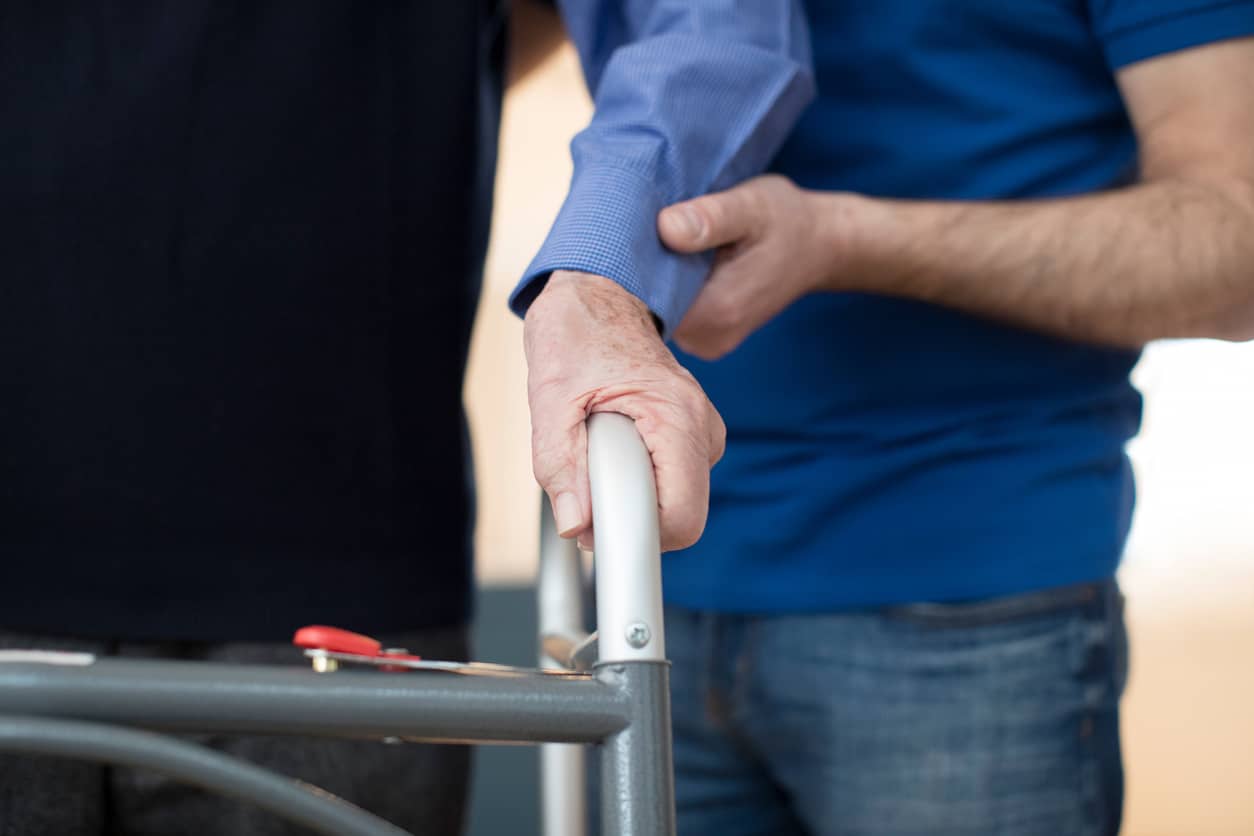Did you know that there is a direct link between psoriasis and mobility? It is true- and there are some things that every individual should know about Psoriasis and how it may impact mobility among sufferers. Observe Psoriasis Awareness Month in August and learn more about this condition.
Psoriasis Awareness Month in August is the perfect time to learn more about this condition- for instance, did you know that an estimated 7 ½ million people have psoriasis in this country? In the US, psoriasis is the most common autoimmune disease diagnosed. There is much to learn about psoriasis including the wide range of complications that can come with this condition.
Another interesting fact is how psoriasis may impact an individual’s mobility, which in turn, directly affects autonomy. If you live with psoriasis, consider how mobility aids can make life easier and more accessible.
Here is what you should know about psoriasis and mobility:
Psoriasis
When you think of psoriasis, you might only consider how it affects the skin of those afflicted. The truth is that psoriasis is the most common autoimmune disease diagnosed today and it can bring with it a wide range of complications and conditions.
Typically, psoriasis manifests in symptoms of metabolic syndrome, which can create difficulty with mobility and autonomy among those living with this condition. Furthermore, genetic risks and environmental triggers may cause more severe or frequent symptoms and outbreaks.
Testing can help to tease out the best treatment approach and preventative practices to reduce and manage symptoms of psoriasis.
Psoriatic Arthritis
Psoriatic arthritis is a condition that only occurs among those with psoriasis, and around one-third of those with psoriasis will develop psoriatic arthritis.
This is a painful condition that causes swelling, stiffness, and pain in the joints, potentially leading to long-term mobility problems and limitations. Additionally, psoriatic arthritis can lead to a long list of other complications, conditions, and co-occurring issues for those with this diagnosis.
Those most at risk are people with psoriasis between 30 and 50 years of age, and early treatment is key in preventing additional damage and discomfort.
Psoriatic Arthritis Symptoms
So, what are the symptoms of psoriatic arthritis? Some symptoms include the following:
- Fatigue and lethargy
- Swelling and pain, particularly near joints and tendons
- Swelling in toes and fingers
- Limited mobility
- Pain or stiffness
- Nail bed pitting
- Eye inflammation, Uveitis
If you have psoriasis and are experiencing any of these symptoms, see your doctor to discuss and be evaluated for psoriatic arthritis. Early detection and intervention can lower the chance of permanent damage to your joints.
Psoriatic Complications
If you live with psoriasis or psoriatic arthritis, you are more at risk for metabolic syndrome. Some related complications from psoriasis include obesity, heart disease, diabetes, and fatty liver disease, potentially.
Vitamin D
If you have psoriasis, you could be deficient in Vitamin D. This is common among those with autoimmune diseases. Talk to your provider about taking supplements- and ask whether Vitamin D supplements may help with psoriatic symptoms. Some experts suggest that Vitamin D will lessen the frequency and severity of the symptoms of psoriasis.
Eye Issues
Furthermore, your eyes are at risk from complications from psoriatic arthritis. Uveitis, a type of eye inflammation condition, is related to and often a result of psoriatic arthritis. Nearly 20% of those with psoriasis suffer from Uveitis, too.
Some other eye issues that can arise when you have psoriasis include these:
- Dry eye syndrome
- Conjunctivitis
- Cataracts
- Corneal lesions
If you have psoriasis, make sure to maintain regular eye exams to detect and identify eye issues early.
Neurological Inflammation
Psoriatic Arthritis can also put you more at risk for neurological inflammation and diseases like Parkinson’s disease. The result is coordination problems, difficulty with balance, tremors, and an unsteady gait. Many people may not realize the link between conditions like Parkinson’s disease and something seemingly less severe like psoriasis; this is why it is imperative to see a physician at the earliest signs and symptoms of psoriasis to detect and prevent complications when possible.
Psoriasis Awareness Month
There are over seven million Americans currently living with psoriasis, and it is estimated that around one-third of them will be diagnosed with psoriatic arthritis at some point. Since this is such a common health hazard- as well as the most prevalent autoimmune disease in the country- it makes sense to learn more. Make a point to seek and share information during Psoriasis Awareness Month this August. This observance aims to promote research and find a cure for this too-common condition.
Do you have psoriasis? Does it impact your mobility and accessibility? When you are ready to look at ways to make your life more accessible and convenient, come talk to the industry professionals at Pacific Mobility. They offer high-quality mobility equipment and unsurpassed customer service; call or visit today!
President, Husband, Father, Grandfather Graduate of UC Davis- Bio Sci Major- Go Aggies! Jeff has extensive experience in all of Pacific Mobility’s products and services, and specializes in accessibility products as well as stairlifts, ceiling lifts and custom wheel chairs. His hobbies include spending time with family, gardening, mountain biking, exercising and off road motorcycle riding.
24 years as Owner/President of Pacific Mobility Center – selling, installing, and servicing stairlifts, porch lifts, ceiling lifts, pool lifts, handicap ramping, specialty wheelchairs, scooters, power wheel chairs, and other power mobility devices
Certified Environmental Access Consultant since 2008
Licensed General Contractor since 1998
Certified Aging in Place Specialist since 2016
Board Member for Home Access Professionals
Member of Association of Members of the Accessibility Equipment Industry (AEMA)




